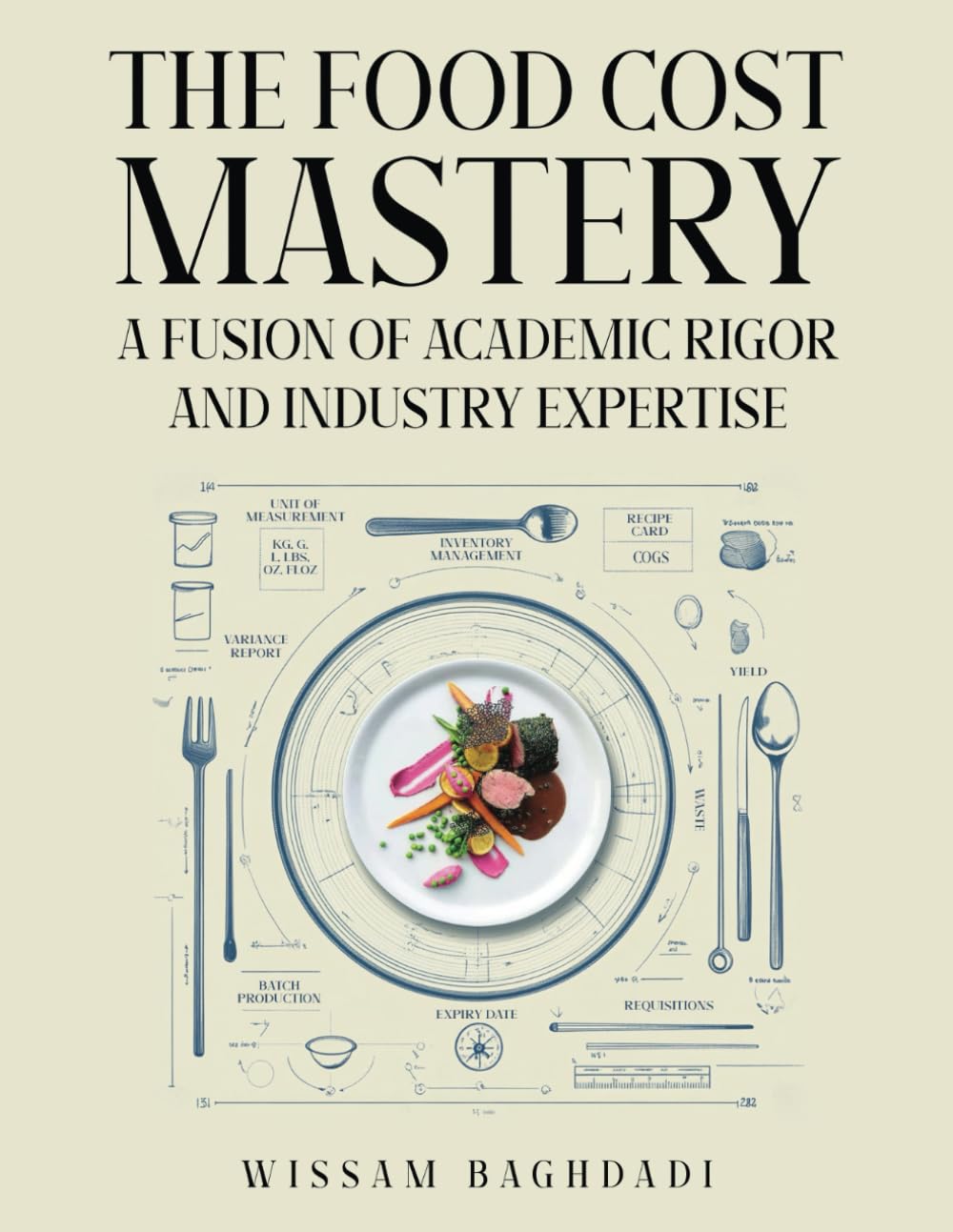
Running a restaurant involves various operational costs, and one of the biggest overhead expenses is utility bills—especially for energy usage. However, the good news is that small, strategic changes in energy and utility management can lead to significant savings, which can, in turn, improve your restaurant’s profitability. In The Food Cost Mastery: Fusion of Academic Rigor and Industry Expertise by Wissam Baghdadi, there’s a focus on reducing operational costs, and energy management plays a pivotal role. Here’s how you can implement energy-saving practices in your restaurant to reduce utility costs and boost your bottom line.
1. Invest in Energy-Efficient Appliances
One of the most impactful ways to reduce energy consumption is to invest in energy-efficient appliances. From ovens and refrigerators to dishwashers and HVAC systems, modern energy-efficient equipment consumes significantly less energy than older models.
Baghdadi emphasizes the importance of evaluating equipment when striving to reduce costs. Though the upfront investment in energy-efficient appliances can be higher, the long-term savings on utility bills often outweigh the initial cost. Additionally, many energy-efficient appliances are designed to operate at optimal capacity, which can improve overall kitchen efficiency.
2. Optimize Lighting and Temperature Control
Lighting and temperature control are two areas where restaurants often waste energy. Switching to LED lights, which consume less power and last longer, can drastically reduce lighting costs. Moreover, ensuring that lights are turned off during off-peak hours can further minimize energy usage.
Similarly, investing in a programmable thermostat or smart heating and cooling systems can significantly reduce HVAC energy consumption. Baghdadi recommends keeping your restaurant’s temperature at an optimal level—cooler in the summer and warmer in the winter—without overexerting your HVAC system. Proper insulation and sealing doors and windows can help maintain the desired temperature, reducing the need for constant heating or cooling.
3. Adopt Sustainable Practices in Daily Operations
Implementing sustainable practices can also lead to significant savings in utilities. Encourage kitchen staff to turn off appliances when not in use, such as grills, fryers, or ovens. Implementing a daily checklist that ensures equipment is properly switched off can prevent energy waste during downtime.
Water conservation is another essential area. Installing low-flow faucets and water-saving dishwashers can lower water consumption, which often results in reduced water heating costs. Additionally, monitoring water usage during peak times can help you identify areas where water use can be minimized.
4. Maintain Equipment and Appliances Regularly
Proper maintenance of kitchen equipment is crucial for ensuring energy efficiency. Over time, appliances can lose their efficiency due to dirt, wear, or improper usage. Regular cleaning and maintenance of your equipment—such as cleaning refrigerator coils, checking oven seals, and servicing your HVAC system—ensure that everything runs efficiently.
Baghdadi stresses that preventive maintenance is key. By proactively maintaining your equipment, you prevent costly breakdowns and ensure that all appliances are working at their highest efficiency.
5. Employee Training and Awareness
Training staff to understand the importance of energy conservation can help reinforce energy-saving practices. Encouraging employees to turn off unused equipment, use energy-efficient cooking methods, and monitor water and energy usage can create a culture of sustainability within your restaurant.
By implementing small, thoughtful changes to energy management, restaurants can reduce their utility bills and improve profitability. Investing in energy-efficient appliances, optimizing lighting and temperature control, adopting sustainable practices, maintaining equipment, and training employees are all effective ways to reduce costs. As The Food Cost Mastery by Wissam Baghdadi suggests, operational efficiency is vital for boosting profits. Small changes in energy use can lead to big savings, making energy management an essential aspect of your restaurant’s long-term success.
Leave a Reply